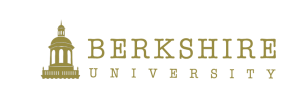An Associate of Science degree is considered a terminal degree. The decision on course transferability rests with the receiving institution.
Associate of Science degree in Medical Laboratory Technician trains students to function effectively as a member of a medical laboratory team. The program provides exposure to laboratory tests in accordance with standardized laboratory practices in clinical chemistry, hematology, urinalysis, clinical microbiology, immunohematology and serology/immunology.
Program Objectives
The following objectives are designed to meet BSU mission and its objectives:
- To develop a student’s ability to perform proficiently on laboratory testing procedures.
- To develop a student’s ability to think critically and communicate effectively.
- To prepare students for entry-level employment in clinical and reference laboratories or physician’s offices as medical laboratory technicians.
Program Goals
- Students will acquire the knowledge and skill development to competently perform standardized laboratory test procedures; Students will acquire critical thinking and problem solving skills to effectively practice in the profession;Students will possess employable entry-level skills required for medical laboratory technicians.
Prerequisites for Major Courses
- Background check and drug screen
- General education courses must be completed with a grade average of 3.0 on a scale of 4.0
Program Outline
To receive an Associate of Science degree in Medical Laboratory Technician, students must earn 73.0 credit hours. Program requirements are as follows:
| Medical Laboratory Technician Major Courses ( 47.0 credit hours ) | |
| Clinical Chemistry I* | 4.0 credit hours |
| Clinical Chemistry II | 4.0 credit hours |
| Clinical Practicum Part I* | 3.5 credit hours |
| Clinical Practicum Part II | 3.5 credit hours |
| Urinalysis | 4.0 credit hours |
| Hematology I* | 4.0 credit hours |
| Hematology II | 4.0 credit hours |
| Microbiology I* | 4.0 credit hours |
| Microbiology II | 4.0 credit hours |
| Serology/Immunology | 4.5 credit hours |
| Immunohematology I | 4.0 credit hours |
| Immunohematology II | 4.0 credit hours |
*Must be completed with a grade of “C” or higher before students are enrolled in the “II” portion of the subjects.
Note: Medical Laboratory Technician students who wish to sit for the Medical Technologist examination may need 8.0 credit hours in Biology and 8.0 credit hours in Chemistry.
General Education Courses ( 26.0 credit hours )



